‘We’ve lost everything’: Australians fleeing apocalyptic wildfires fear for their homes
Evacuees have been forced to leave their homes, their belongings and even pets behind, Gary Nunn reports

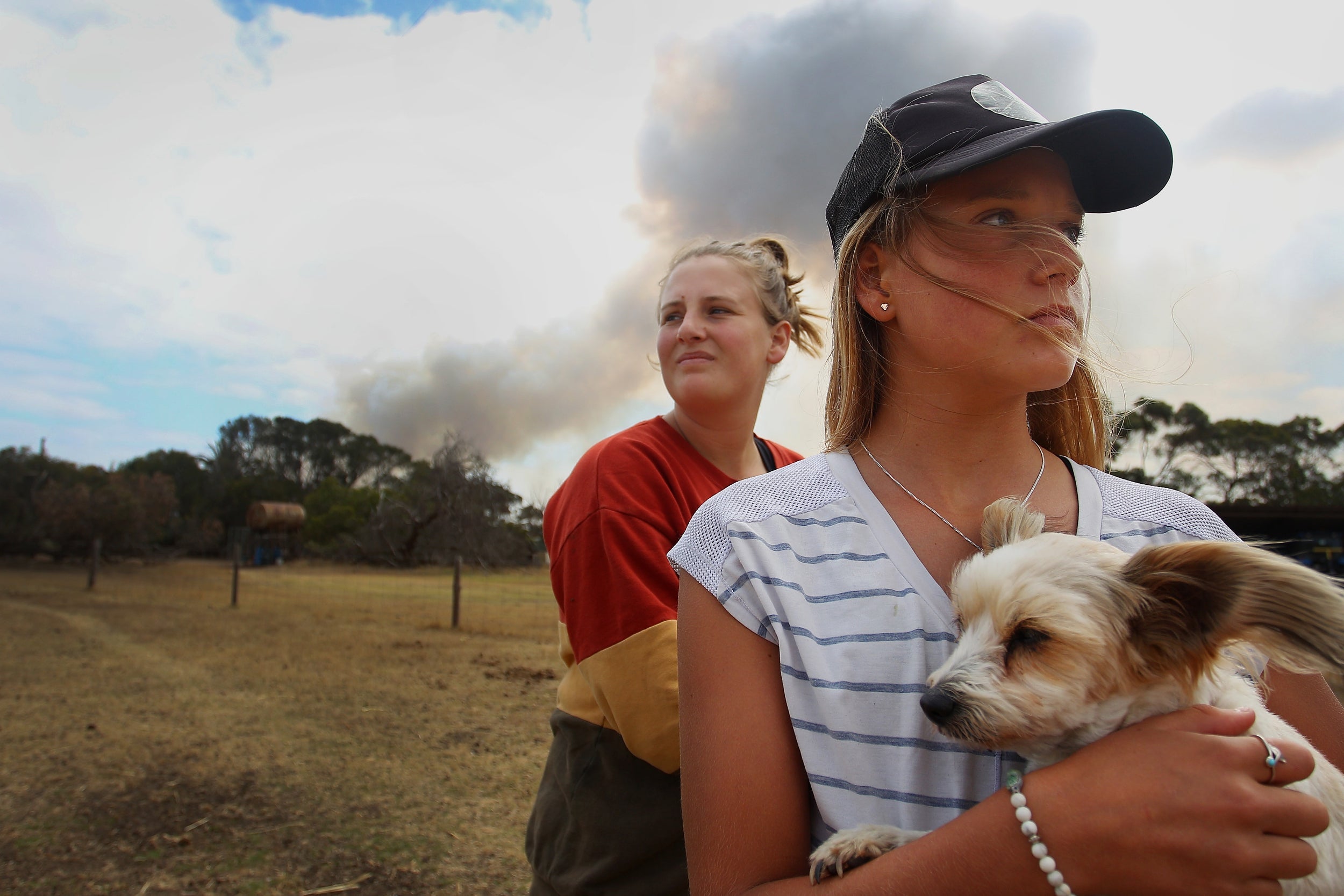
Your support helps us to tell the story
From reproductive rights to climate change to Big Tech, The Independent is on the ground when the story is developing. Whether it's investigating the financials of Elon Musk's pro-Trump PAC or producing our latest documentary, 'The A Word', which shines a light on the American women fighting for reproductive rights, we know how important it is to parse out the facts from the messaging.
At such a critical moment in US history, we need reporters on the ground. Your donation allows us to keep sending journalists to speak to both sides of the story.
The Independent is trusted by Americans across the entire political spectrum. And unlike many other quality news outlets, we choose not to lock Americans out of our reporting and analysis with paywalls. We believe quality journalism should be available to everyone, paid for by those who can afford it.
Your support makes all the difference.It was 6am on the penultimate day of the year when Lynn Brown, 76, got the call saying she had to evacuate, urgently.
As she answered, she glanced outside: the smokey sky at Batemans Bay in New South Wales already had an ominous red glow. It wasn’t the Australian sun.
Lynn quickly packed into two little backpacks her rescue-from-fire items: passports, jewellery, a handful of treasured possessions – and scarpered. What happened next is difficult for her to recount.
“I’m still trying to get over the terrible shock of it,” she tells The Independent. “Even talking to you now, I get the shakes. My hand won’t stop shaking.”
Rushing, Lynn and husband Barry, 80, first knocked on every house of her street. “It’s a tourist area – many houses don’t have landlines like us” she says. Panicked parents with young kids moved at rocket speed.
The last thing Lynn did before heading to the evacuation centre was try to save her absent neighbour’s elderly cat, Bonnie. But Bonnie wouldn’t let Lynn anywhere near her. “She bit and scratched. So we had to leave her,” Lynn says, sighing.
Despite Australian prime minister Scott Morrison playing down the bushfire crisis and his role in response, or backbenchers in his government denying any climate change link, this is the biggest natural disaster Australia has ever faced, far exceeding any other bushfires, which Australia sees annually. These fires are unique for their ferocity, frequency and prematurity in the bushfire season.
They’ve covered an area the size of South Korea – 10.3 million hectares, 25 people are known to have died and the economic impact will likely exceed $4.4bn (£3.4bn).
Experts estimate that a billion animals have been killed in the disaster.
The smoke has reached New Zealand and even Argentina. And they’re not over – a current brief reprieve will see weather conditions deteriorating again later this week.
Among such heartbreaking headlines, small stories of resilience and hope are emerging. And one of them is Bonnie the aged cat.
As Lynn entered the Batemans Bay evacuation centre, inside a football ground, among the 4,000 people, and dozens of dogs, cats and horses, there was one large, elderly cat who’d been wrestled into a small cage by two persistent neighbours: Bonnie.
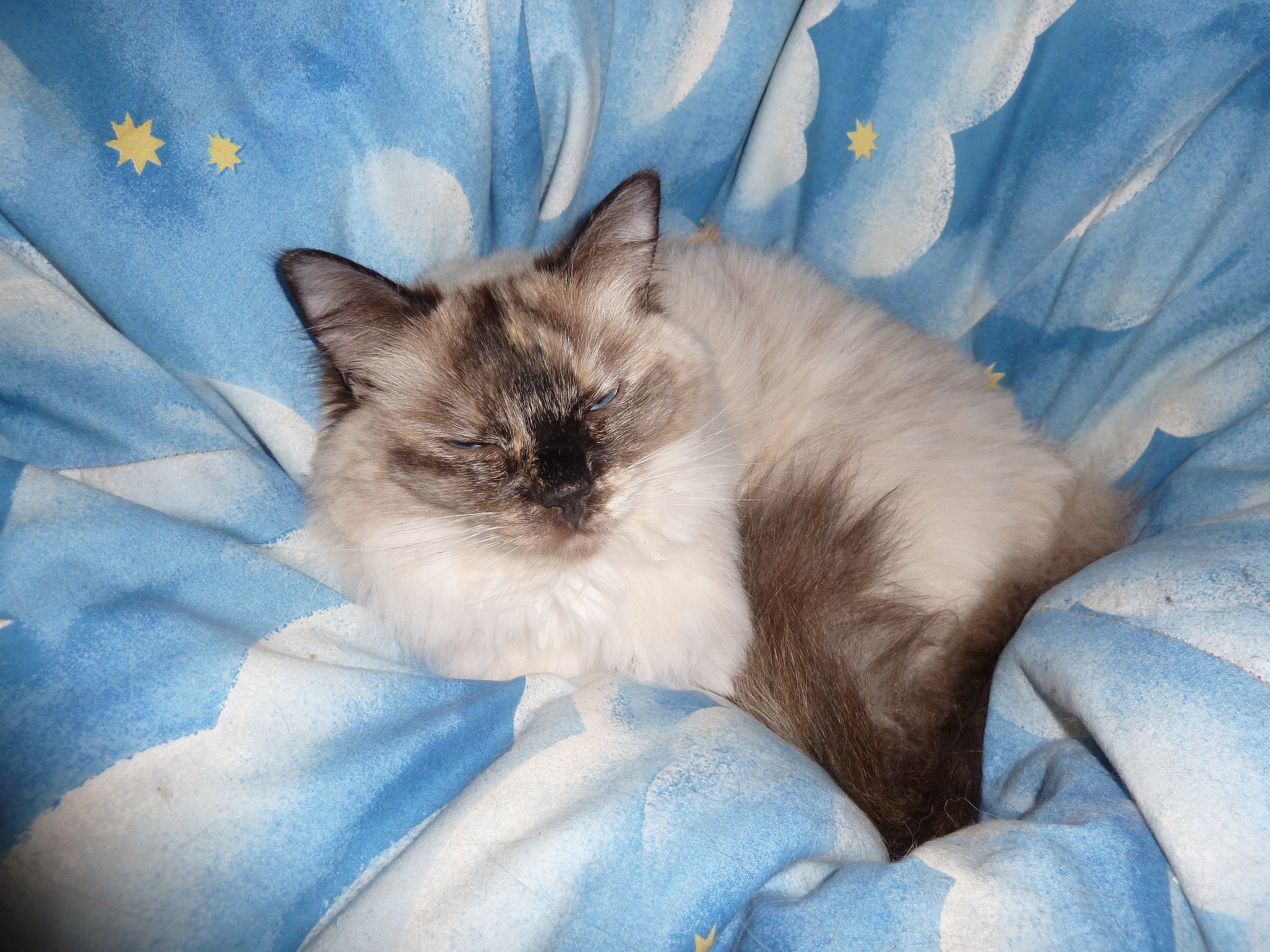
It was a rare moment of joy for Lynn on a “terrible day”. Images of Batemans Bay residents sheltering on the beach went viral, but the reality was different. “We were told to avoid the beach – you might be safe from flames but you can’t breathe,” Lynn says.
Inside the evacuation centre, nobody was prepared for the scale of the disaster. There wasn’t enough food, water, or hope. “Volunteers were amazing. But people were upset, scared and looking for anyone to blame. I was in tears. People I knew hugged me, weeping, saying, ‘I’ve lost my home and everything I own.’ That happened several times.”
There was no power, no petrol and no phones. They were trapped. Lynn and Barry found an elderly neighbour, 88, wandering around alone and confused. Together, they fled.
“The evacuation centre was so dreadful, we decided to walk across the road to the tennis club.”
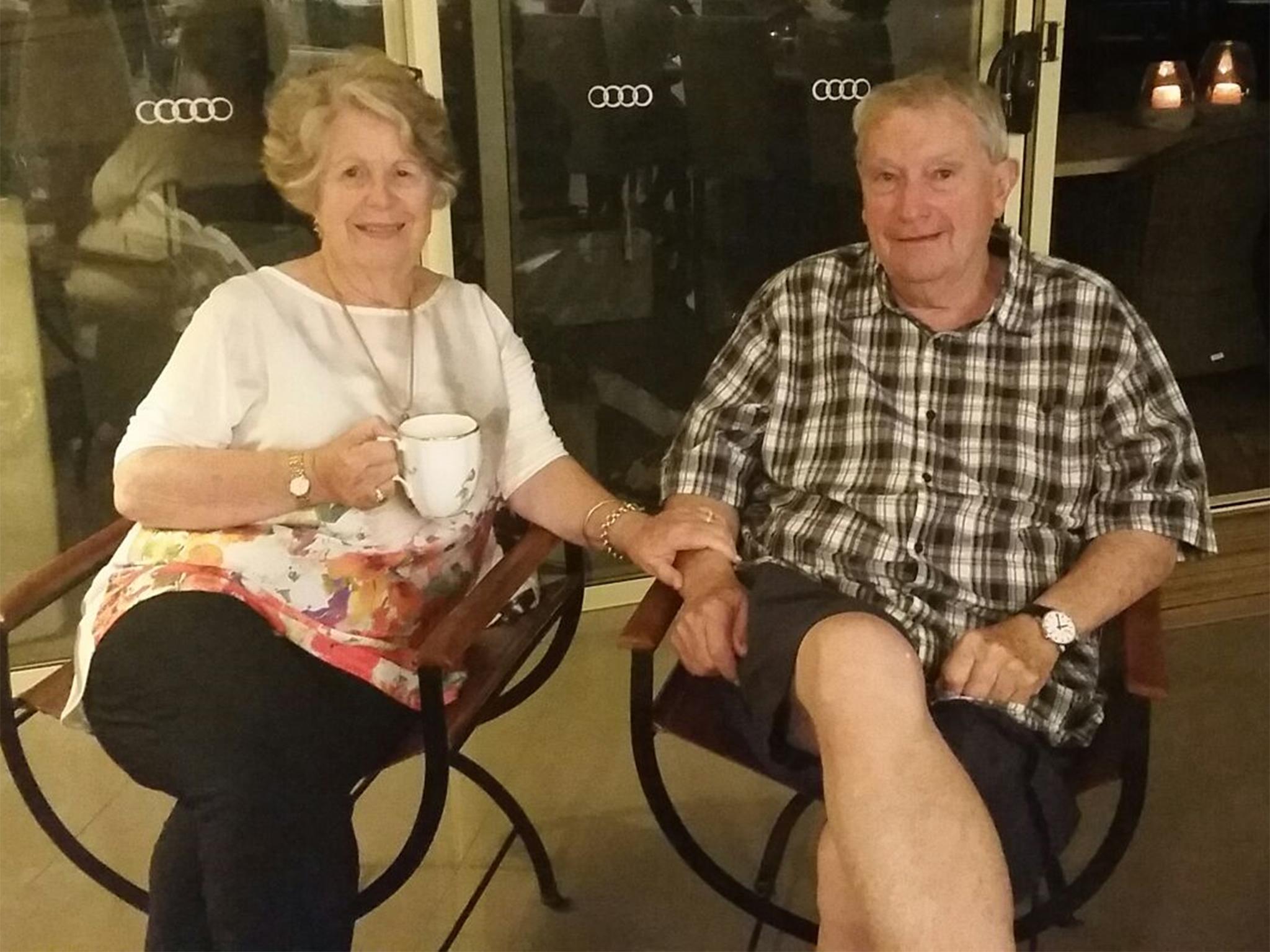
They couldn’t have picked a worse time. “Suddenly, the sky went completely orange, then, in daylight, it turned pitch black. You couldn’t see in front of your face. You were breathing ash. We went out of the frying pan and into the fire.”
Sirens suddenly sounded from every corner. The deafening crack of blades thundered down from above. Lynn looked up. A helicopter was waterbombing the caravan park opposite the evacuation centre - she heard gushing and cracking. The three pensioners were completely exposed.
“We’re all old people. We’ve been through a lot in our lives. We’d never seen anything like this. We were so very frightened.”
In the evacuation centre were recovery workers like Amanda Lamont, who’s been volunteering for the Australian Red Cross for 10 years. During this crisis, she volunteered at the Red Cross’s evacuation centre in East Gippsland, Victoria. Mattresses lined the floor, tears flowed down faces, and “raw emotion” permeated the smoke-polluted air.
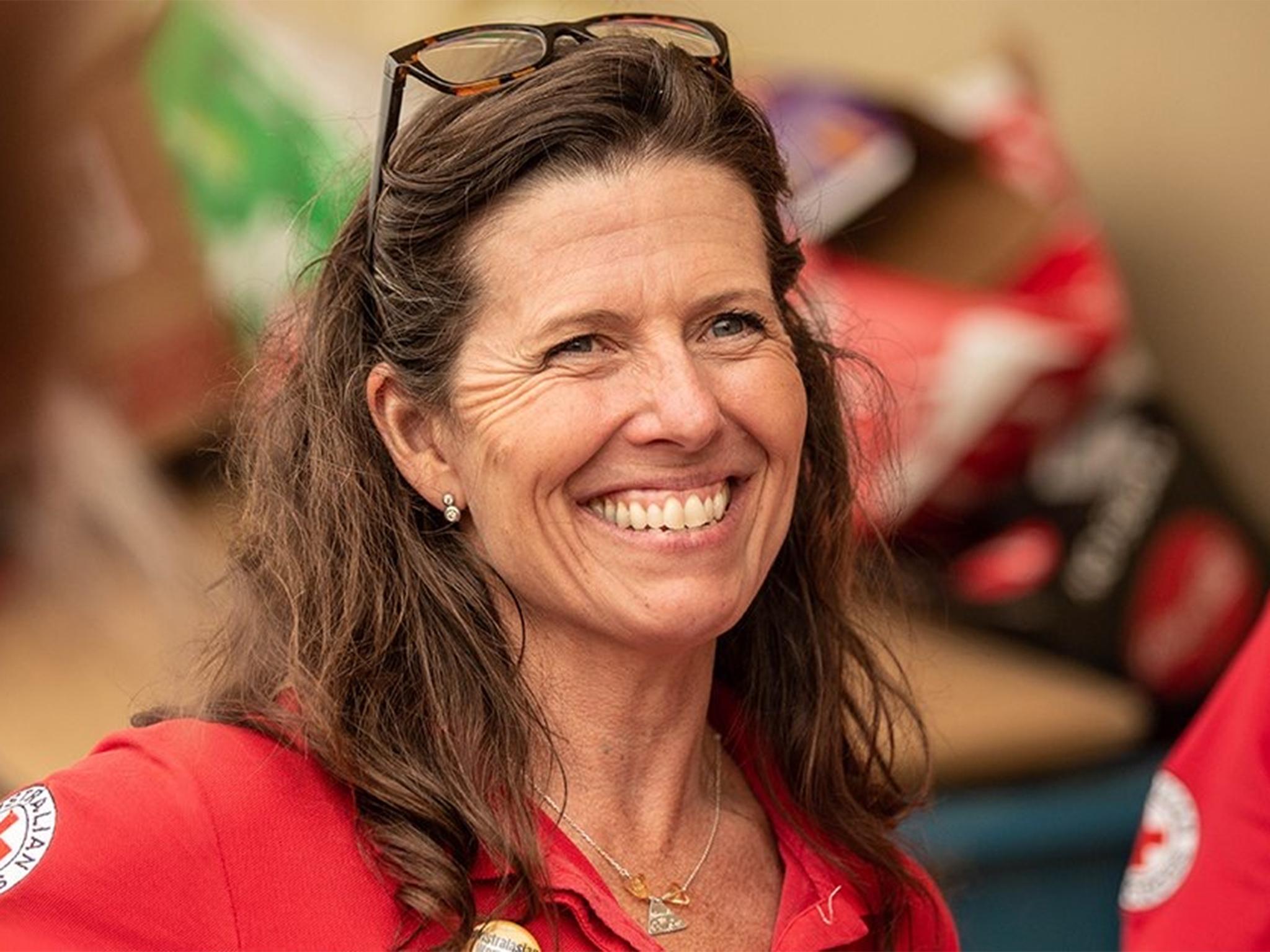
“It’s a sad place,” Amanda says. “But we ensure it isn’t too morose, by creating an atmosphere of safety, comfort and hope.” Among the people waiting to hear if homes have burnt to the ground, a defiant optimism exists. “There are enough good stories to keep people in good spirits,” Amanda says.
In that moment, her own emotions feel unimportant. “It’s about being present with people, witnessing their elation, their devastation, whatever it is – it’s not about me and what I might feel. It’s knowing that person has someone with them.” The Australian Red Cross has an excellent debrief process, she says, whereby a mental health professional checks in on the psychological wellbeing of volunteers shortly after the event. It has kept her coming back for a decade.
In addition to volunteering for the Red Cross, Amanda is a volunteer firefighter – a country as big as Australia relies on volunteers to defend their local communities; residents often train up to manage fire risks on their own properties. When asked why she volunteers, Amanda says: “Something needs to be done, why wouldn’t I do it? I can so I do. If my house is on fire, it’s volunteers who help – there are no paid firefighters where I live.”
Graeme East, 67, has been with Volunteer Fire Brigades Victoria for 50 years. Speaking of this year’s devastation, he says it’s “pretty gut wrenching”. Faced with his own neighbours who’ve lost everything, he says: “It’s tough. You wish you could do more, but you just can’t.”
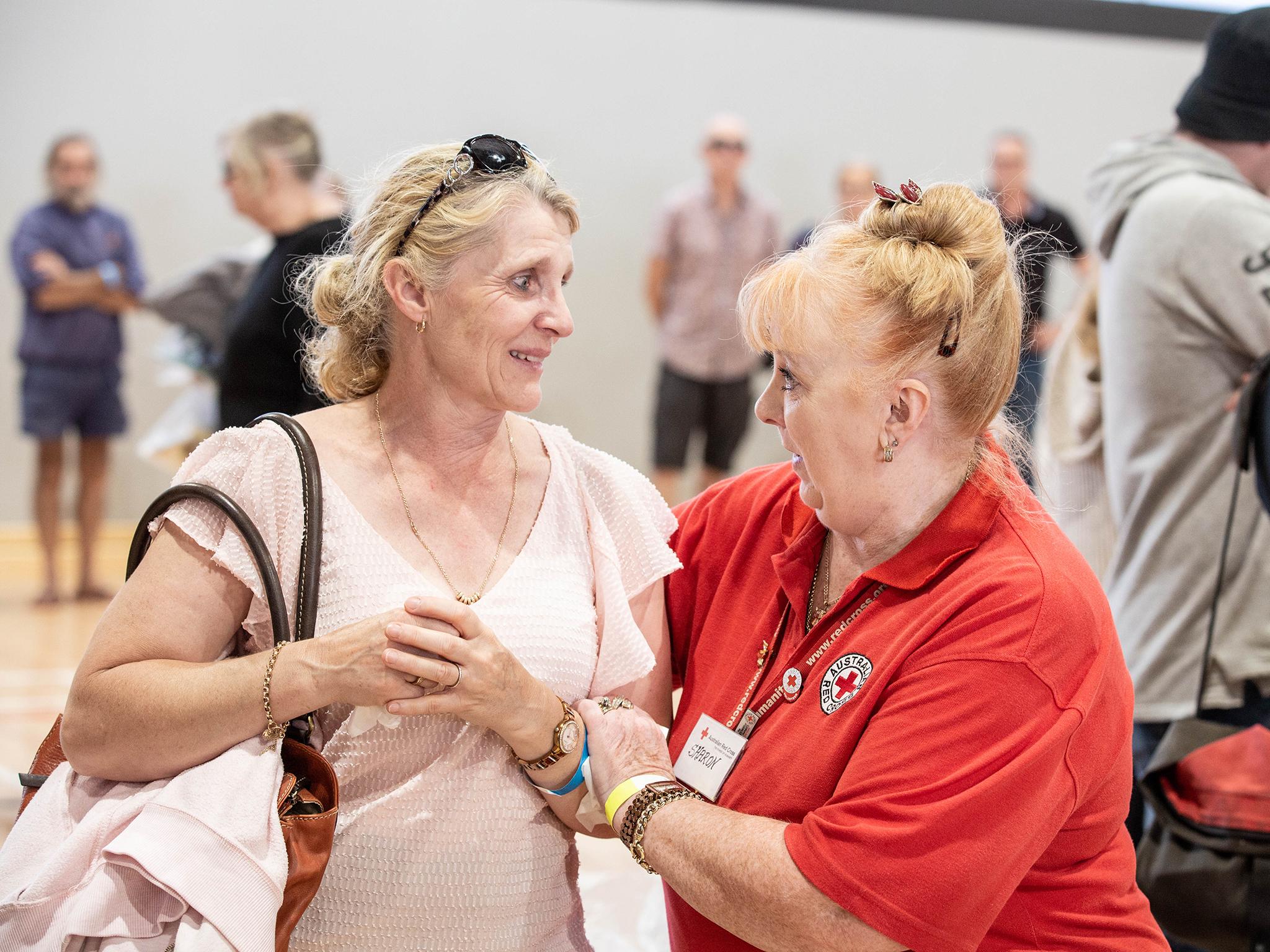
Some have turned to crowdfunding pages to help desperate friends or family.
Lauren Crocker, 29, set up a GoFundMe to help her parents, whose house in Lenswood, south Australia, was lost days before Christmas. “This house was the fruit of my parents’ labours for 22 years and the home I always thought I’d grow old in,” she writes. “Anyone who knows my parents know they’re the most stoic, caring and selfless people and would never ask for help.”
Her parents are currently sheltering with her in Brisbane, almost 2,000km away. On Christmas Day, with just two bags of possessions left in the world, they called upon some of Australia’s famous larrikin spirit to see them through. “After someone passing away or illness, it’s the next worst thing you can tell people,” Lauren says. “So we tried to have a giggle about it.”
Lynn and Barry are now safe in Sydney with family.
They’ll soon return to Batemans Bay. “There’s nothing left to burn there,” Lynn says. “We live there because we love the wild. When you think about it, it was craziness, living there among those gumtrees we adored.
“They’re all gone now.”
Donations to the Australian Red Cross can be made here.
Join our commenting forum
Join thought-provoking conversations, follow other Independent readers and see their replies
Comments